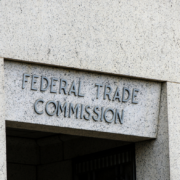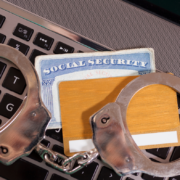NCL releases Top Ten Scams Report of 2024
Sweepstakes and prizes are #1, while cryptocurrency scams are most expensive
Media Contact – Lisa McDonald, Vice President of Communications, (202) 207-2829
Washington, DC – Today, the National Consumers League (NCL) announces our Top Ten Scams report of 2024. The number one scam of 2024 was Prizes, Sweepstakes, and Free Gifting accounting for 38% of reported scams. However, the most expensive scam causing the most amount of financial loss was Cryptocurrency and Investment schemes. The reported median loss for cryptocurrency scams was $30,000, up from $20,000 in 2023.
2024 is the second year in a row where Phishing/Spoofing and Internet Merchandise cams joined sweepstakes scams to round out the top three fraud categories.
Scammers look to get victims to send them money via methods that lack strong consumer protections. For scams involving a financial loss, Bank Account Debit and Wire Transfer made up 33.1% and 12.9% of complaints respectively.
“Every year, complaints to Fraud.org paint a heartbreaking picture,” said NCL Vice President of Public Policy, Telecommunications, and Fraud John Breyault. “It is apparent the problem of fraud is not going away on its own. Policymakers at all levels should urgently address this issue and take comprehensive action to combat this epidemic.”
The top ten scam categories reported to Fraud.org in 2024 were:
- Prizes/Sweepstakes/Free Gifts: 38.27%
- Phishing/Spoofing: 18.83%
- Internet: General Merchandise: 17.04%
- Investments: Other (incl. cryptocurrency): 6.46%
- Fake Check Scams: 3.83%
- Advance Fee Loans, Credit Arrangers: 2.91%
- Friendship & Sweetheart Swindles: 2.04%
- Family/ Friend Imposter: 1.64%
- Internet: Information/Adult Services: 0.72%
- Misc. Other: 0.60%
*Other complaint categories (e.g. scholarship/grant scams, counterfeit drugs, work-at-home scams) outside of the top ten categories make up the remaining 5.69% of complaints.
“Reporting fraud is an essential step for victims,” said NCL Consumer Services Manager James Perry. “When an individual reaches out, we can connect them with the proper resources and begin to walk them through the recovery process. The information they share also helps inform decisions around fighting these scams.”
Online scams can affect anyone, especially in the ever-changing digital world we live in today.
The 2024 Top Ten Scams Report is available here
The National Consumers League Top Ten Scams report analyzed 2,526 complaints submitted by consumers to NCL’s Fraud.org campaign in 2024. This data is self-reported by victims and should not be considered a nationally representative sample. NCL shares complaint data with a network of law enforcement and consumer protection agency partners who combine it with other data sets to identify trends in fraud and build cases.
###
About the National Consumers League (NCL)
The National Consumers League, founded in 1899, is America’s pioneer consumer organization. Our mission is to protect and promote social and economic justice for consumers and workers in the United States and abroad. For more information, visit nclnet.org.


















